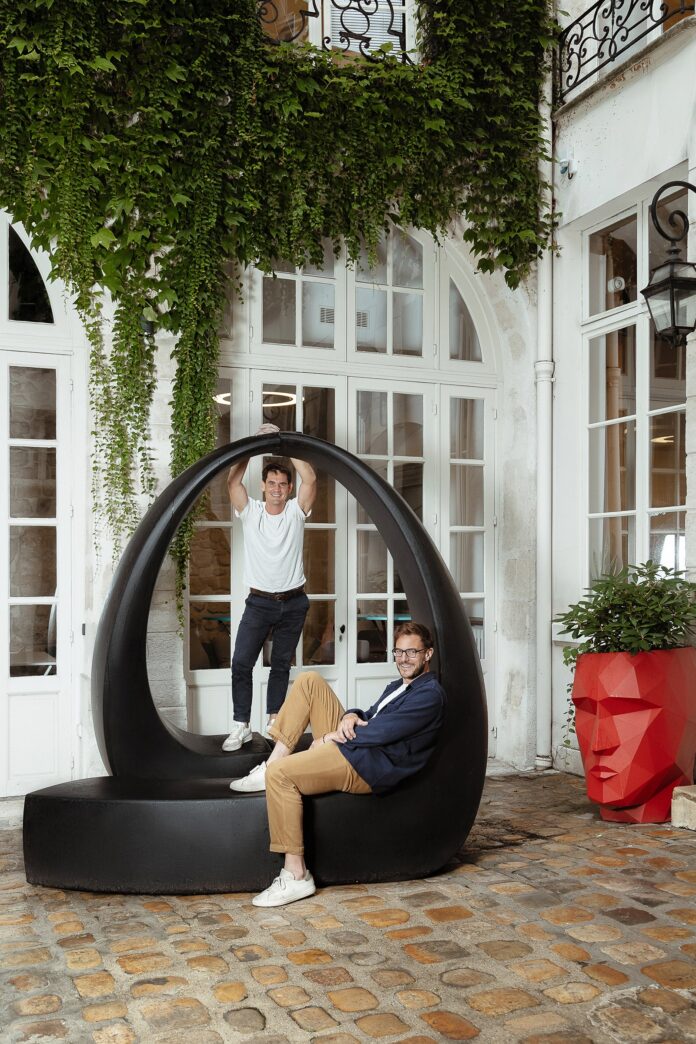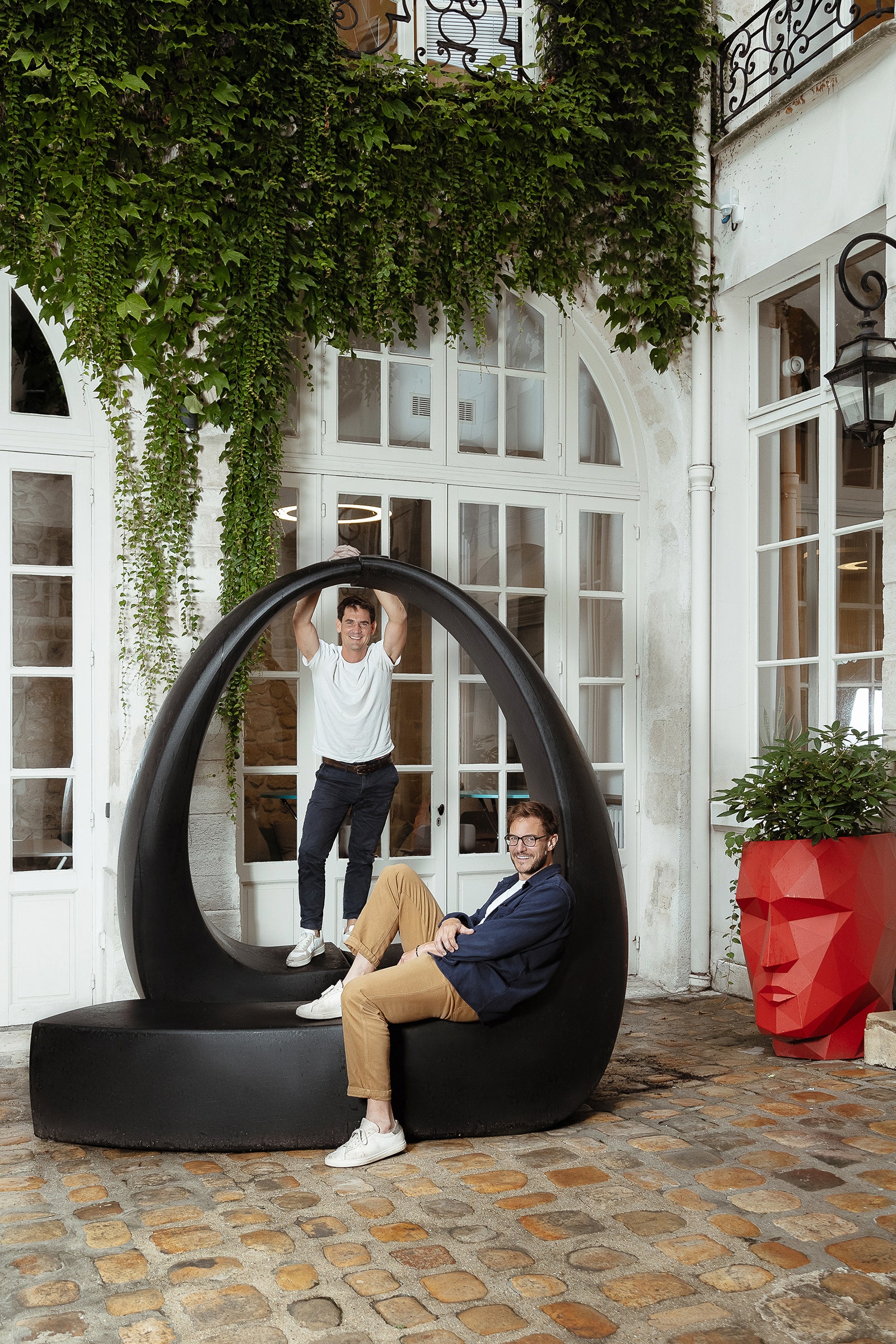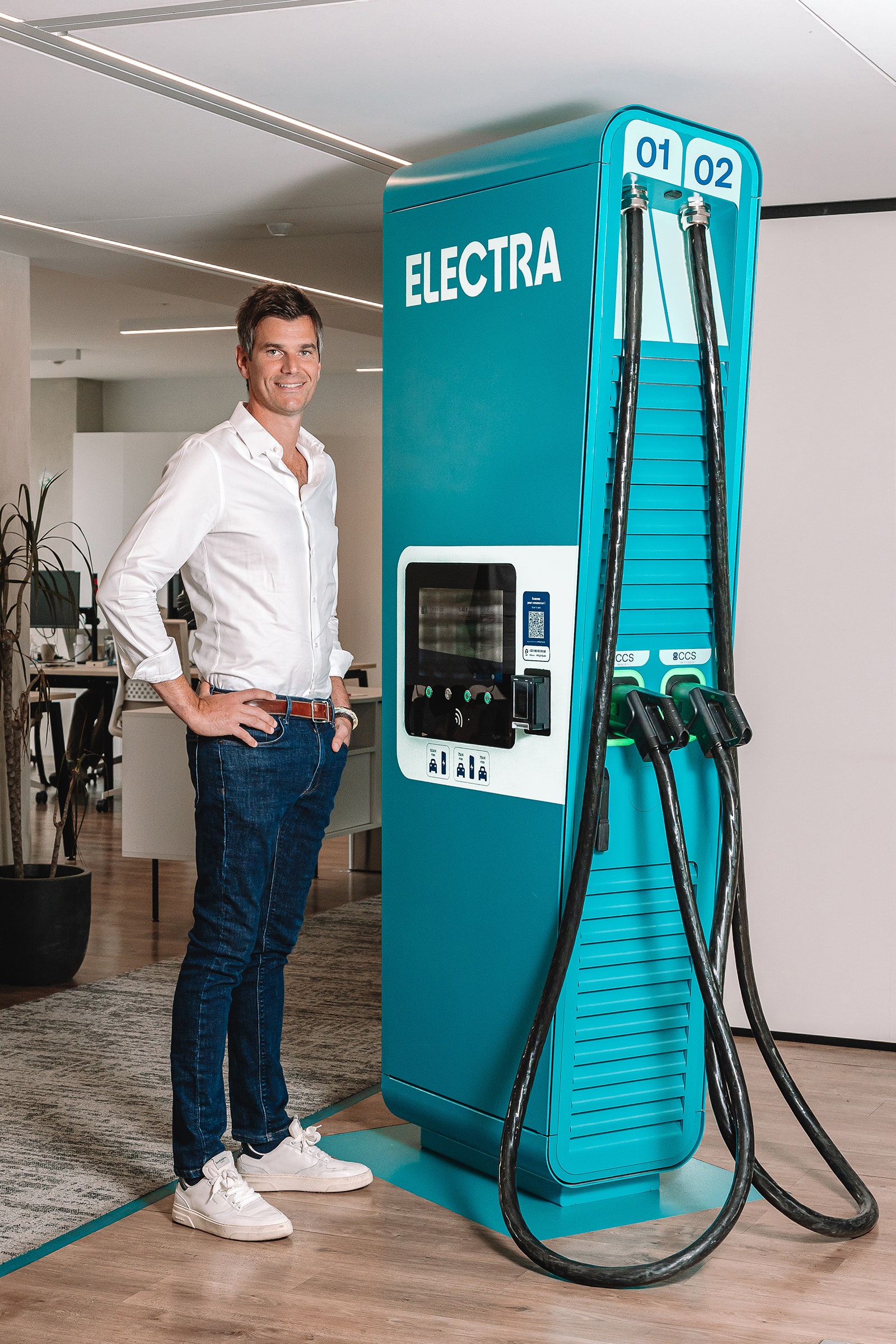In the past two years the French capital has been in the throes of AI fever and has launched some of Europe’s most talked-about startups, including Mistral, which is currently valued at $6.2 billion (£4.7 billion). That’s partly down to the support the industry has received. President Emmanuel Macron has given French AI startups some emphatic political backing, while telecoms billionaire Xavier Niel has provided much investment and will to finance national ambition. In September 2023, Niel invested €200 million ($212 million), splitting that money between funding for startups such as Mistral, an AI research lab called Kyutai and a cloud supercomputer powered by Nvidia. “I’m the old guy who likes entrepreneurs and the idea was always the same: how we can help this talent to stay here, creating companies,” says Niel.
Niel, a prolific French businessman who owns telecommunications company Iliad, believes European AI companies now have a unique opportunity to act. “If you want to create a search engine now from scratch, you cannot win because you weren’t there 25 years ago. It’s exactly the same with AI,” he says. To compete with the US, Europe has to move fast. “[Or] in the end, we will be the nicest place in the world for museums—that’s good but maybe we can try to do something a little bit different.”
Mistral
In almost every European country, there is a startup vying to rival OpenAI. Yet few make a claim as serious as Mistral. To date the company has raised €1 billion ($1.11 billion) including a €15 million ($16 million) investment from Microsoft. Since launching in April 2023, its three co-founders, CEO Arthur Mensch, Timothée Lacroix and Guillaume Lample have marshaled the startup to release 12 models, including its flagship multi-language text generation model, Mistral Large. With 27 million downloads from public repositories, Mistral’s clients (such as telecoms company Orange, and Hugging Face) use the startup’s models to personalize promotional messages or power their own virtual assistants. Mistral’s free-to-use chatbot, Le Chat, functions much like OpenAI’s ChatGPT and is designed to give the public a way to experiment with Mistral’s open-source technology. “We’ve been promoting open source as the one way to make the technology go faster and be safer because there’s more scrutiny on it,” CEO Mensch told CNBC in a rare interview, adding Europe is at a turning point in its race to compete with tech superpowers. “We have willpower and we’ll make it happen,” he insists. mistral.ai
Sweep
Companies that neglect sustainability are facing two major risks: regulation and reputation. That’s according to Rachel Delacour, CEO of Sweep, who co-founded the sustainability-focused data management platform in 2020 alongside Yannick Chaze and Raphael Güller. “Every company out there must transition to the low carbon economy,” she says, adding it’s now a competitive advantage for a business to be able to track sustainability targets across their operations. “Eventually your customers, your employees, your supply chain will ask what you are doing.” The startup is already working with hundreds of clients, including L’Oréal and UK energy group SSE, which license the company’s platform in order to pool data from across their entire supply chain and identify their sustainability weak spots. A client manufacturing water bottles that must be hand-washed, for example, would be able to see how much more water-efficient its product would be if customers could clean them in the dishwasher, says Delacour. This year the startup is focused on expanding to the US after raising a total of $100 million (£76 million), with investment from Tony Fadell, creator of the iPod. sweep.net
Dust
Dust is yet another buzzy Paris-based AI startup. Launched by co-founders Gabriel Hubert and OpenAI alumni Stanislas Polu in 2023, Dust creates custom AI bots for companies. So far, most of its clients, which include 500 teams at companies such as PennyLane and Watershed, are experiencing fast growth but don’t yet have strict processes in place. That means teams are more likely to be empowered to play around building a specialist content writer or feedback analyser AI assistant themselves, says Hubert. Armed with €20 million ($22 million) in funding, the idea behind the startup is that office workers don’t need just one multi-purpose AI assistant, instead they need a series of highly-specialized models to choose from to perform different tasks. “That level of customization is really what gets them a report when they need it, a [spreadsheet] when they need it or an executable, interactive graph,” Hubert says. dust.tt
H
When news leaked that a group of engineers who worked on advanced models at Google’s AI division, DeepMind, were preparing to start their own company in early 2024, investors raced to lend their support. Initially known as Holistic AI, the company only changed its name to H in May 2024. It has already secured $220 million (£152 million) in investment, including from former Google CEO Eric Schmidt, Xavier Niel and venture capital firm Accel. Although it’s unclear if the company has any clients—or even products—yet, its elusive co-founder and CEO, Charles Kantor (a former venture resident at Stanford University), has promised his team are developing “full” artificial general intelligence or AGI that would “boost the productivity of workers”. So far little is known about H’s mission, although the reputation of its co-founders, DeepMind scientists Laurent Sifre and Karl Tuyls, both considered leaders in their field, means there is significant excitement to find out. hcompany.ai
Bioptimus
Within five months of founding Bioptimus, the company’s six co-founders launched the world’s largest open-source foundation model for cancer detection. Trained on hundreds of millions of images, H-optimus-0 identifies cancerous cells and genetic abnormalities in tumors, says co-founder and principal research scientist, Zelda Mariet. For her, this is just the beginning. Current models are really good at performing very focused jobs such as analyzing images of cancer tissues, she says. But Mariet wants Bioptimus to build a model that can also analyze a patient’s DNA, cells and tissue to understand how they are all connected. Right now, the company is still in the exploratory phase, after raising $35 million (£26.6 million) from investors such as French bank Bpifrance and telecoms billionaire Xavier Niel. bioptimus.com
Electra
The European Commission has forecast that at least 30 million electric cars will be on European roads by 2030 and EV charging startup Electra is preparing for that moment, aiming to deploy 2,500 ultra-fast charging sites by that date. Since launching in 2020, it has hit 300 sites across Europe—each with six charging points—including in Paris, Brussels and Pisa. The idea is to make operating an EV seamless and hassle-free. Drivers use Electra’s app to book charging slots in advance with charging sites automatically recognizing regular users. “What Tesla did with cars, is what we’re trying to do with infrastructure,” says Aurélien de Meaux, CEO and one of three co-founders, alongside Augustin Derville and Julien Belliato. So far, Electra’s eye-catching charging stations have enabled more than one million 20-minute charging sessions, with French users paying between €0.39 and €0.52 per kWh. The company has raised €304 million ($338 million), including from investment group Eurazeo and French bank Bpifrance. go-electra.com
Amo
Amo is the latest French startup trying to reinvent social media. The company is led by CEO Antoine Martin, who sold his last social media business Zenly to Snap in 2017 for upwards of $200 million (£152 million). Since launching in 2023, Amo has launched three separate social media apps designed to re-focus online relationships with friends, instead of influencers: Tilt (two-sided video), Bump (for location sharing) and ID (collaborative mood boards). Already, Amo has raised €18 million ($19.9 million) from investors including VC New Wave, which also backed Paris-based social media startup BeReal before it was acquired by app publisher Voodoo. amo.co
Spore.Bio
After years spent working as an engineer at Nestlé, Amine Raji became frustrated with the outdated technology the food industry used to detect bacteria. “That’s why you have so many food recalls and sanitary outbreaks,” he says, adding that 420,000 people die every year due to foodborne illnesses. In an effort to end that, the three co-founders behind Spore.Bio—Raji, Maxime Mistretta and Mohamed Tazi—created the Vision device to identify bacteria in seconds. It works by shining a light on the bacteria (a practice called biophotonics) so machine learning algorithms can identify what type of bacteria is present by studying its reaction. Since launching in January 2023, five food factories are using the prototype, paying a fixed monthly fee for the hardware. The company has raised €8 million ($8.8 million) from investors including Google DeepMind’s Mehdi Ghissassi and VC firm LocalGlobe. spore.bio
NcodiN
NcodiN is working to become a critical cog in the complex world of semiconductor manufacturing. “We make the world’s smallest lasers,” says Francesco Manegatti, co-founder and CEO. These lasers, 500 times smaller than the standard size, make it possible for NcodiN to build what’s called an optical chip, which will feature devices a quarter of the size of a single human hair. Working in the clean room of France’s National Centre for Scientific Research (CNRS), NcodiN has so far raised €4.5 million ($4.9 million) for its plan to build these sophisticated optical chips, which will one day enable supercomputers to transfer data quickly and efficiently between different electronic parts. The company is in talks with some of the major chip manufacturers about testing, and is targeting 2028 to deliver its first volume of wafers to clients. ncodin.com
Astran
Astran wants to shield companies from severe cyber attacks. Its product, Continuity Cloud, uses Astran’s proprietary technology to encrypt and distribute its clients’ sensitive data when they are under attack. Astran’s backend combines “algorithms in a patented architecture that enables your critical data to be encoded and fragmented before being stored in multiple clouds at the same time,” says CEO Yosra Jarraya, who co-founded the company with Yahya Jarraya and Gilles Seghaier in 2021. Astran’s customers include aerospace company Airbus and French pharmaceutical giant Sanofi, while the company has raised $5 million (£3.8 million) to date. Investors include Paris-based seed fund Galion.exe and SISTAFUND, which backs female founders. astran.io
This article first appeared in the November/December 2024 edition of WIRED UK.
Source : Wired













